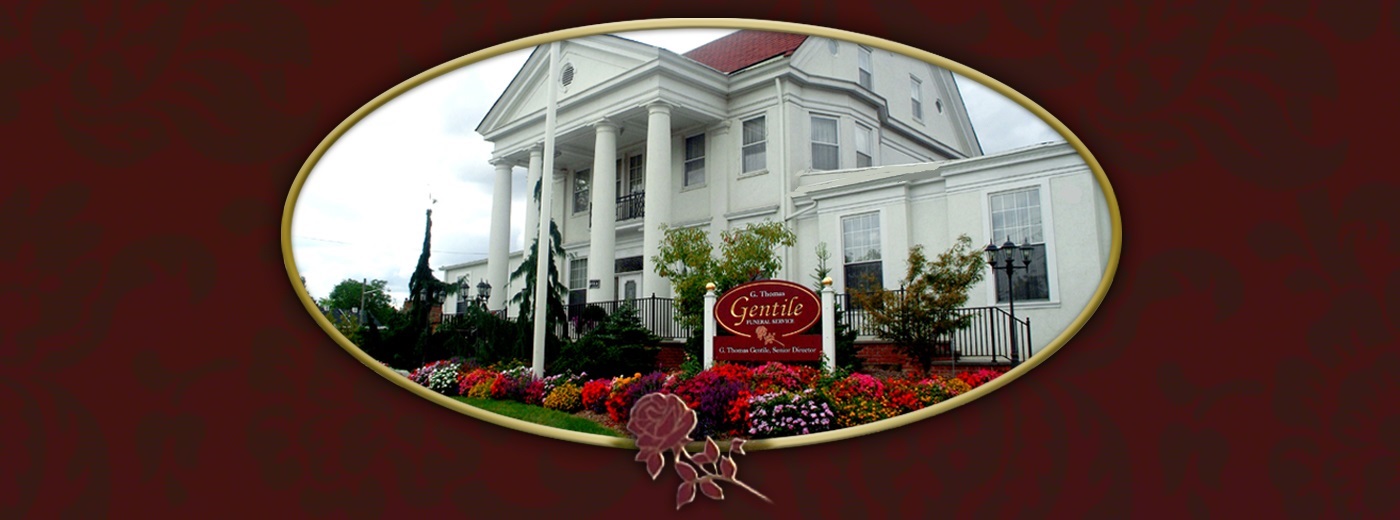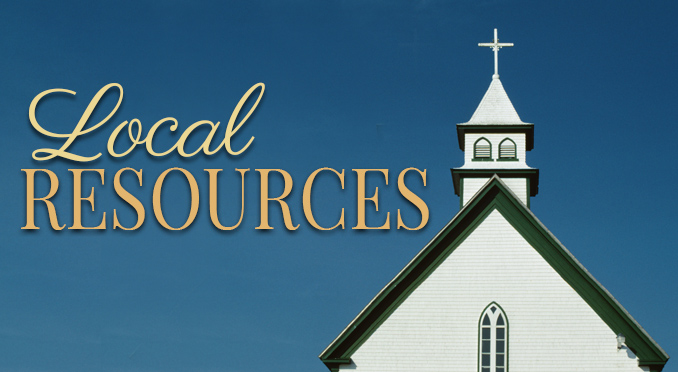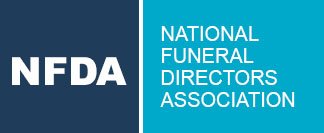Facts for Consumers
Funerals: A Consumer Guide -- September 1991
Each year, Americans arrange more than 2 million funerals for family and friends. Initially consumers may not be concerned about funeral expenses. Yet, at a potential cost of more than $3,000, consumers may want to be aware of regulations that help protect them.
The Federal Trade Commission (FTC) developed a trade regulation rule concerning funeral industry practices, which went into effect April 30, 1984. It is called the Funeral Rule; its purpose is to enable consumers to obtain information about funeral arrangements.
In general, the rule makes it easier for you to select only those goods and services you want or need and to pay for only those you select. Now, for example, you can find out the cost of individual items over the telephone. Also, when you inquire in person about funeral arrangements, the funeral home will give you a written price list of the goods and services available. When arranging a funeral, you can purchase individual items or buy an entire package of goods and services. If you want to purchase a casket, the funeral provider will supply a list that describes all the available selections and their prices. Thus, as described in greater detail in the following section, the FTC's Funeral Rule helps you obtain information about the cost and availability of individual funeral goods and services.
Telephone Price Disclosures
When you call a funeral provider and ask them about terms, conditions, or prices of funeral goods or services, the funeral provider will:
Tell you that price information is available over the telephone.
Give you prices and any other information from the price lists to reasonably answer your questions.
Give you any other information about prices or offerings that is readily available and reasonably answers your questions.
By using the telephone, you can compare prices among funeral providers. Getting price information over the telephone may thus help you select a funeral home and the arrangements you want.
General Price List
If you inquire in person about funeral arrangements, the funeral provider will give you a general price list. This list, which you can keep, contains the cost of each individual funeral item and service offered. As with telephone inquiries, you can use this information to help select the funeral provider and funeral items you want, need, and are able to afford.
The price list also discloses important legal rights and requirements regarding funeral arrangements. It must include information about embalming, cash advance items (such as newspaper notices or flowers), caskets for cremation, and required purchases.
Embalming Information
The Funeral Rule requires funeral providers to give consumers information about embalming that may help you decide whether to purchase this service. Under the Rule, a funeral provider:
May not falsely state that embalming is required by law.
Must disclose in writing that, except in certain special cases, embalming is not required by law.
May not charge a fee for unauthorized embalming unless it is required by state law.
Will disclose in writing that you usually have the right to choose a disposition such as a direct cremation or immediate burial if you do not want embalming.
Will disclose to you in writing that certain funeral arrangements, such as a funeral with a viewing, may make embalming a practical necessity and, thus, a required purchase.
Cash Advance Sales
The Funeral Rule requires funeral providers to disclose to you in writing if they charge a fee for buying cash advance items. Cash advance items are goods or services that are paid for by the funeral provider on your behalf. Some examples of cash advance items are flowers, obituary notices, pallbearers, and clergy honoraria. Some funeral providers charge you their cost for these items. Others add a service fee to their cost. The Funeral Rule requires the funeral provider to inform you when a service fee is added to the price of cash advance items, or if the provider gets a refund, discount, or rebate from the supplier of any cash advance item.
Caskets for Cremation
Some consumers may want to select direct cremation, which is cremation of the deceased without a viewing or other ceremony at which the body is present. If you choose a direct cremation, the funeral provider will offer you either an inexpensive alternative container or an unfinished wood box. An alternative container is a non-metal enclosure used to hold the deceased. These containers may be made of pressboard, cardboard, or canvas. Because any container you buy will be destroyed during the cremation, you may wish to use an alternative container or an unfinished wood box for a direct cremation. These could lower your funeral cost since they are less expensive than traditional burial caskets.
Under the Funeral Rule, funeral directors who offer direct cremations:
may not tell you that state or local law requires a casket for direct cremations.
must disclose in writing your right to buy an unfinished wood box (a type of casket) or an alternative container for a direct cremation.
must make an unfinished wood box or alternative container available for direct cremation.
Required Purchases
You do not have to purchase unwanted goods or services as a condition of obtaining those you do want unless you are required to do so by state law. Under the Funeral Rule:
you have the right to choose only the funeral goods and services you want, with some disclosed exceptions.
the funeral provider must disclose this right in writing on the general price list.
the funeral provider must disclose on your itemized statement of goods and services selected the specific state law that requires you to purchase any particular item.
Statement of Funeral Goods and Services Selected
The funeral provider will give you an itemized statement of the total cost of the funeral goods and services you select. This statement will also disclose any legal, cemetery, or crematory requirements that compel you to purchase any specific funeral goods or services.
The funeral provider must give you this statement after you select the funeral goods and services that you would like. The statement combines in one place the prices of the individual items you are considering for purchase, as well as the total price. Thus, you can decide whether to add or subtract items to get what you want. If the cost of cash advance items is not known at this time, the funeral provider must write down a "good faith estimate" of their cost. The Rule does not require any specific form for this information. Therefore, funeral providers may include this information in any document they give you at the end of your discussion about funeral arrangements.
Preservative and Protective Claims
Under the Funeral Rule, funeral providers are prohibited from telling you a particular funeral item or service can indefinitely preserve the body of the deceased in the grave. The information gathered during the FTC's investigation indicated these claims are not true. For example, funeral providers may not claim embalming or a particular type of casket will indefinitely preserve the deceased's body.
The Rule also prohibits funeral providers from making claims that funeral goods, such as caskets or vaults, will keep out water, dirt, and other gravesite substances when that is not true.
Other Considerations
Most decisions about purchasing funeral goods and services are made by people when they are grieving and under time constraints. Thinking ahead may help you make informed and thoughtful decisions about funeral arrangements. In this way, you can carefully choose the specific items you want and need and can compare prices offered by one or more funeral providers.
If you decide to make advance plans about funeral arrangements either for yourself or a loved one, you can choose among several types of dispositions and ceremonies. The type of disposition you choose may affect the cost. Some people prefer a ceremonial service, religious or secular, with the body present. Others choose an immediate burial and hold a memorial or other ceremony with no body present. Another service is cremation which may be performed either directly or after a ceremony. In addition, the deceased body may be donated (either directly or after a ceremony) to a medical or educational institution. To help ensure that your wishes are carried out, you may want to write down your preferences. It may also be helpful to tell relatives and other responsible persons what you have decided.
For More Information
Most states have a licensing board that regulates the funeral industry. You may contact the licensing board in your state for information or help. You may also contact the Conference of Funeral Service Examining Boards, 15 Northeast 3rd Street, P.O. Box 497, Washington, Indiana 47501, (812) 254-7887. The Conference, which represents licensing boards in 47 states, provides information on laws in various states and accepts and responds to consumer inquiries or complaints about funeral providers.
If you want additional information about how to make funeral arrangements and the available options, you may want to contact interested business, professional, and consumer groups. Some of the largest include:
American Association of Retired Persons AARP Fulfillment 601 E Street, N.W. Washington, D.C. 20049
AARP is a nonprofit, nonpartisan organization dedicated to helping older Americans achieve lives of independence, dignity and purpose. AARP publishes Funeral Goods and Services and Pre-Paying for Your Funeral? These publications are available free by writing to the address listed above.
Continental Association of Funeral and Memorial Societies 6900 Lost Lake Road Egg Harbor, Wisconsin 54209 1-800-458-5563
CAFMS is a consumer organization that disseminates information about alternatives for funeral or non-funeral dispositions. It encourages advance planning and cost efficiency.
Cremation Association of North America 401 North Michigan Avenue Chicago, Illinois 60611 (312) 644-6610
CANA is an association of crematories, cemeteries, and funeral homes that offer cremation. More than 750 members own and operate crematories and encourage the concept of memorialization.
International Order of the Golden Rule P.O. Box 3586 Springfield, Illinois 62708 (217) 793-3322
OGR is an international association of independent funeral homes in which membership is by invitation only. Approximately 1,500 funeral homes are members of OGR.
Jewish Funeral Directors of America, Inc. 250 West 57th Street, Suite 2329 New York, New York 10107 (212) 582-9744
JFDA is a national trade association of funeral directors serving the Jewish community. It has approximately 200 members.
National Funeral Directors Association 11121 West Oklahoma Avenue Milwaukee, Wisconsin 53227 (414) 541-2500
NFDA is the largest educational and professional association of funeral directors. Established in 1882, it has 14,000 members throughout the United States.
National Funeral Directors and Morticians Association 1800 East Linwood Boulevard Kansas City, Missouri 64109 (816) 921-1800
NFDMA is a national association primarily of black funeral providers. It has 2,000 members.
National Selected Morticians 1616 Central Street Evanston, Illinois 60201 (708) 475-3414
NSM is a national association of funeral firms in which membership is by invitation only and is conditioned upon the commitment of each firm to comply with the association's Code of Good Funeral Practice. Consumers may request a variety of publications through NSM's affiliate, the Consumer Information Bureau, Inc.
Pre-Arrangement Association of America 6321 Bury Drive, Suite 8 Eden Prairie, Minnesota 55346 (612) 937-5879
PAA is a national association with more than 400 members in the cemetery and funeral home business. The primary purpose of the organization is to provide pre-arrangement purchases of funeral and cemetery goods and services.
Funeral Service Consumer Assistance Program National Research and Information Center 2250 E. Devon Avenue, Suite 250 Des Plaines, Illinois 60018 1-800-662-7666
FSCAP is a program designed to assist consumers and funeral directors in resolving disagreements about funeral service contracts. FSCAP is a service of the National Research and Information Center, an independent, nonprofit organization that researches and provides consumer information on death, grief, and funeral service.
For Further Help
If you have a problem concerning funeral matters, first attempt to resolve it with your funeral director. If you are dissatisfied, contact your federal, state, or local consumer protection agencies, the Conference of Funeral Service Examining Boards, or FSCAP. While the Federal Trade Commission does not resolve individual consumer disputes, information about your experience may show a pattern of conduct or practice that the Commission may investigate to determine if any action is warranted. Write: Correspondence Branch, Federal Trade Commission, Washington, D.C. 20580.
FTC CONSUMER & SMALL BUSINESS ADVISORY - PUBLIC DOCUMENT








